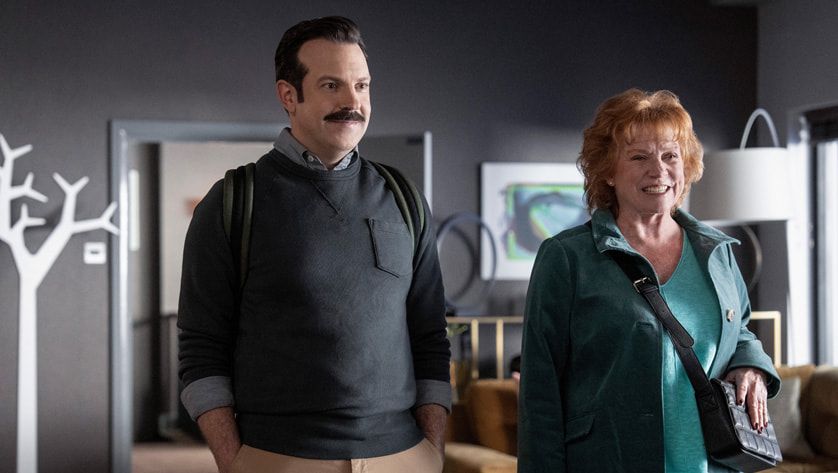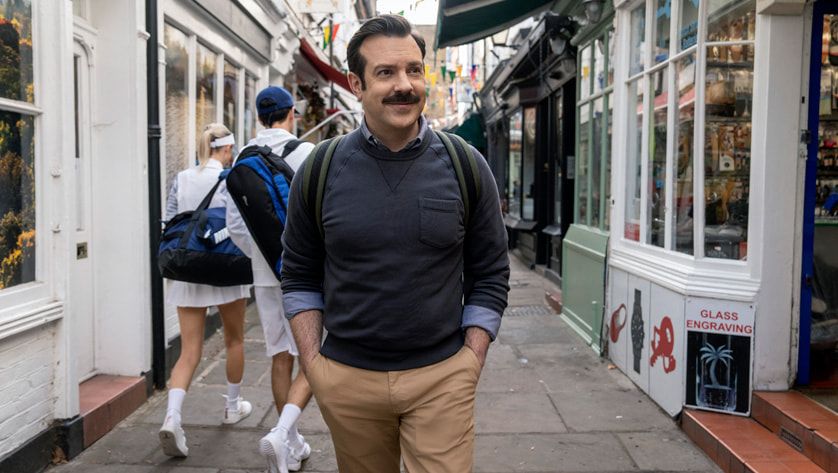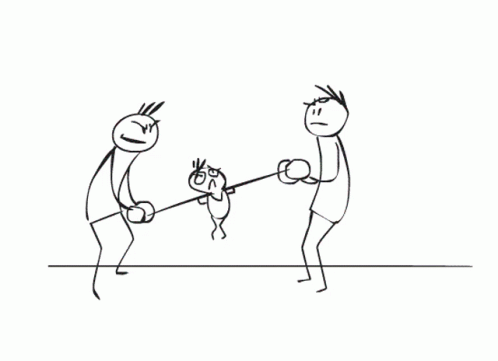Hey did Teddy ever tell you about the time he ate a candy bar made of poop?

Human behaviour is confounding. Of course, that doesn’t stop us from trying to work out why people act the way they do:
- Why did my boss send me such an abrupt email?
- Why is my teenager so evasive?
- Why doesn’t my friend return my calls?
- Why does my mum keep interfering in my life?
- Why don’t my employees ever come up with new ideas?
- Why can’t my kid just do what I ask?
- Why do I get so defensive when someone criticises me?
We often assume that there’s something within each person that causes these behaviours. We might attribute it to their personality, their beliefs, their desires, their choices, their fears, their maturity… or something else. It’s natural to focus on some “problem” inside an individual.
However, because humans are social creatures our behaviour is also affected by our reactions to the people around us. Which means that we can’t get a complete picture of what is driving someone’s behaviour if we only look at an individual - we also need to observe what is happening between them and others.
One thing to look for is the way people react when they feel that those around them are “too close” and how they react when they feel that those around them are “not close enough”
How close is too close?
Our world can be unsettling. And so we all depend on other people to help stabilise us. We want other people to be close. But…there is such a thing as too much closeness!
And so, in all our important relationships, we are constantly trying to find a balance between too much closeness and too much difference or distance.
You might feel too much closeness when your…
- Boss micro-manages your every task
- Toddler follows you to the toilet
- Friend gets upset because you always leave it up to them to initiate spending time together
- Partner criticises you for not pulling your weight around the house
- Mum reminds you to put on a jumper because it’s cold outside or gives you unsolicited advice about your love life
- Dad tells you to listen to your mother
You might feel too much distance when your…
- Boss keeps postponing your regular catchups
- Teenage daughter spends all her time scrolling
- Best friend’s time is completely taken up with her new romantic interest
- Partner never asks you how you’re going
- Colleagues have been gossiping about you
- Parents give your siblings more attention than they give you
When there is too much closeness we can feel suffocated or controlled.
When there is not enough closeness we can feel neglected or betrayed.
And, without being aware of it, we are constantly reacting to the tensions this creates, trying to find a balance where we feel more comfortable.
It’s a bit like a boxing match.

I’m no boxing expert. But I find it fascinating to watch how each boxer manages the distance between them and their opponent. They are constantly gauging the space and making adjustments based on whether they feel too close or too far away. So sometimes they’ll throw jabs or move around the ring to get some distance. Other times they will move forward, stalking their opponent, as they bring the fight in close.
It’s also a bit like a flock of birds.
Have you ever marvelled at the way a flock of starlings swoops and dives and wheels left and right with such precision? (If you’re not sure what I mean check out this article on starling murmurations.) How do they pull off such intricate choreography while avoiding mid-air collisions?
According to scientists, this behaviour isn’t caused by something within each bird. It’s not driven by some inner desire. It’s not something they consciously choose. Instead each bird automatically reacts to the 6 or 7 birds closest to it. When it feels too close, it moves further away. When it feels too far away, it moves closer. It’s instinct. A reflex. Each bird constantly reacts to the other birds closest to it.
It turns out we’re all a bit like starlings. And boxers.
We’re constantly reacting automatically to the feeling of closeness between us and others. Trying to get it…just right.
There’s a terrific illustration of this in Ted Lasso Season 3.
The team Ted coaches, AFC Richmond, is on a roll. They’ve enjoyed a stunning run of victories and to everyone’s surprise they’re an outside chance of winning the English Premier League.
As episode 11 begins, Ted is wandering through town, greeting and being greeted by locals. Life is rosy in Richmond.

“Hello there”
“Hey there”
“Hey Ted”
“Howdy”
It’s smiles all round as Ted bounces along with the background music. And so it takes a moment for him to recognise that the woman on the park bench he has just greeted isn’t just a friendly local. It’s like one of those classic cartoon double takes.
“Mum?
“Hey Teddy”.
The look on Ted’s face tells us his life just got a whole lot more complicated. His mum Dottie has come to town. What could possibly go wrong? After all Ted loves his mum and she loves him. So why do their conversations seem so strained?
Ted: Is everything ok mum?
Dottie: Oh sure. I’m just looking around.
Ted: No, no. No, I mean, you being here in London. Is everything ok?
Dottie: Oh yeah. Everything’s fine.
Ted: Well, um, I mean, how long you been here?
Dottie: Just a week.
Ted: A week? Where the heck you staying?
By coming to England unannounced Dottie has invaded Ted’s turf. And it’s clear he feels unsettled. Yet whenever he moves towards his mum she pulls away. This leads to a very awkward “dance” where both are constantly trying to guess what the other wants.
Ted: Uh, well, look, how about you stay here for the rest of your trip, all right?
Dottie: Only if I'm not a hassle.
Ted: You're not a hassle, Mom, okay? Please stay here.
Dottie: Okay.
Ted: Okay, good.
Dottie: All right.
Ted: Now, look, I gotta get to work.
Dottie: All righty. Have fun.
Ted: Um. You wanna tag along?
Dottie: Well, I don't wanna be in your hair.
Ted: Mom, I want you in my hair. Okay? I want you in my friends' and coworkers' hair. Now, please. Come on with.
Next minute we find Dottie holding court among the players in Richmond's change room. She's regaling them with stories from Ted's childhood while they laugh uproariously and Ted watches on.
Dottie: So I say, "Officer, you must be mistaken. You couldn't have arrested my son. My son is asleep in his own bed."
Then we cross to Ted and his boss Rebecca.
Rebecca: It must be so lovely having your mother visiting, Ted.
Ted: Oh, yeah. It's great… No. It's weird. Didn't even tell me she was coming. Just showed up out of nowhere, you know, like one of them weird eyebrow hairs I started getting the day after I turned 40.
Rebecca: That’s what mothers do, Ted.
Back to Dottie… the players are still laughing...
Dottie: Hey did Teddy ever tell you about the time he ate a candy bar made of poop?
Yep that's what mother's do. And fathers. Brothers. Grandparents. Friends. Colleagues. Employers. Even with the best of intentions they encroach on your space.
No wonder Ted is feeling uncomfortable. He doesn’t want his mum to feel neglected (he wants closeness). But he doesn’t want his mum invading his space (he doesn’t want too much closeness).
According to Dr Murray Bowen this tension is completely normal.
In his research on families Bowen observed that humans are driven by two powerful life forces which pull us in opposite directions.

Togetherness
On one hand, from the time we are in our mother’s womb we form a deep emotional connection to our family. We are completely dependent on them at birth and although this changes as we grow up there is a profound emotional bond that never fully goes away.
Throughout our lives we experience an instinctive drive to be close to people. We are sensitive to their approval, their attention, their distress and expectations. We depend on them for stability. We go along to get along. There’s a strong pull to be “one”.
Bowen called this the “togetherness force”.
We not only see it playing out in families but between friends, in community groups and workplaces as well. It’s the drive to have each others’ backs, be on the same page, and keep the peace. It can promote loyalty and commitment but can also foster group-think or peer pressure.
Individuality
On the other hand, from the time we are born we also experience a drive to think and act for ourselves. We want to be our own person, direct our own course, and make our way in the world.
Bowen called this the “individuality force”.
We see it playing out when someone resists the pull of the crowd, makes their own plans, and expresses their own opinions. That is, we see it when someone acts like an adult.
Tension
The thing is these two forces pull us in opposite directions.
- We are driven to be close to others - but not too close.
- We are driven to be independent - but not too independent.
When we are confounded by someone’s behaviour (or by our own behaviour) we naturally jump in to diagnose the individual. We might moralise - “she’s so selfish”. We might pathologize - “he’s a narcissist”. We might blame - “I’m hopeless”. But when we focus on the individual we miss the bigger picture. Which means we can’t truly understand what is going on.
So… how could it change the way I make sense of a challenging relationship if I take togetherness and individuality forces into account?
- Instead of blowing up at a child who refuses to do what I ask, how might it help me to think about their behaviour as an attempt to gain more individuality?
- Instead of silently resenting my micromanaging boss, what if I think about her over-involvement as an attempt to find stability when she is feeling anxious?
- Instead of taking it personally when a friend seems to have less time for me, what if I think about their response as a reaction to feeling too much togetherness?
- Instead of getting annoyed when my colleagues push back on my ideas, what if I see this as an expression of individuality?
- And, instead of blaming my team for lacking courage when they avoid having difficult conversations, what if I consider how togetherness forces might be playing out in our workplace?
In these situations, thinking about togetherness and individuality forces does not mean simply putting up with immature behaviour. But it can help me see more clearly and think more calmly:
- How is this person’s behaviour influenced by what's happening in their relationships?
- What role am I playing in the wider relationship system as I react to other people and they react to me?
- How I can manage myself in a more thoughtful way so I don’t simply feed more anxiety back into the system?
- How can I connect with this person in an appropriate way while giving them space to have their own thoughts and be their own person?
So...
What has this got you thinking about?
- Can you think of a relationship where you feel too much “togetherness” pressure? How do you tend to react? How could thinking about “togetherness” and “individuality” help you respond in a more calm and thoughtful way?
- Can you think of a relationship where you feel frustrated at the way the other person pulls away or pushes back? How do you tend to react? How could thinking about “togetherness” and “individuality” help you respond in a more calm and thoughtful way?
